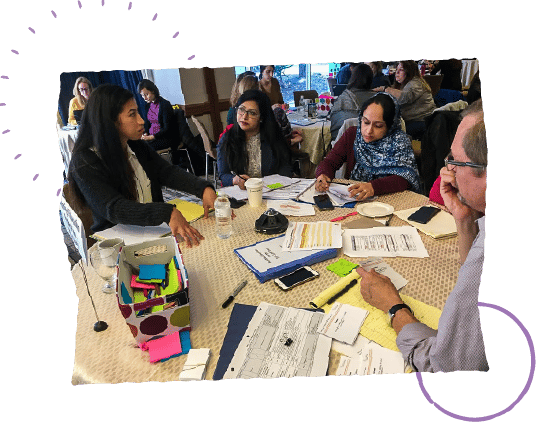Evaluation
Learn how to develop a ToC-based evaluation

Evaluation Goals and Planning
There are many reasons to collect data about a particular program. It may simply be a requirement of your organization or the entity funding the program. There may be pressure to demonstrate results to access more funding, promote the program, or publish positive findings.
Given these pressures, what sometimes happens in program evaluation is that the list of measures is very long to assess everything that could possibly change. This more traditional approach is understandable given the pressure to prove that a program works; however, it puts an enormous burden on participants and doesn’t necessarily serve to investigate the Theory of Change (ToC) or improve the program. Within the IDEAS Framework, the ultimate purpose of an evaluation is to investigate the program theory of change and improve the program through fast-cycle iteration.
Planning a TOC Based Evaluation
A common pitfall in program evaluation is that even when theories of change are created, there is a mismatch between program goals and what they measure. The IDEAS approach to evaluation helps address this issue.
Within the Framework, there are three steps to planning a ToC-based evaluation:
Identify Theory of Change-based questions
Choose an appropriate evaluation design
Select tools to gather information (i.e., measures)
Of course, there are many other more technical aspects to preparing for evaluation, such as accessing the measures you hope to use, deciding whether to collect data on paper or digitally, training your data collection team, recruiting participants, etc.
Though important, these technical aspects of evaluation will not be covered in this section. Instead, we’re going to focus on these three steps to designing an evaluation that is closely tied to your theory of change and sets you up for fast-cycle iteration.

Click the link below to download a fast-cycle iteration worksheet your team can use to plan a ToC-based evaluation, following the steps outlined in the next section. Completing this worksheet is an opportunity to engage in co-creation by involving community members, practitioners, members of the research team, etc.